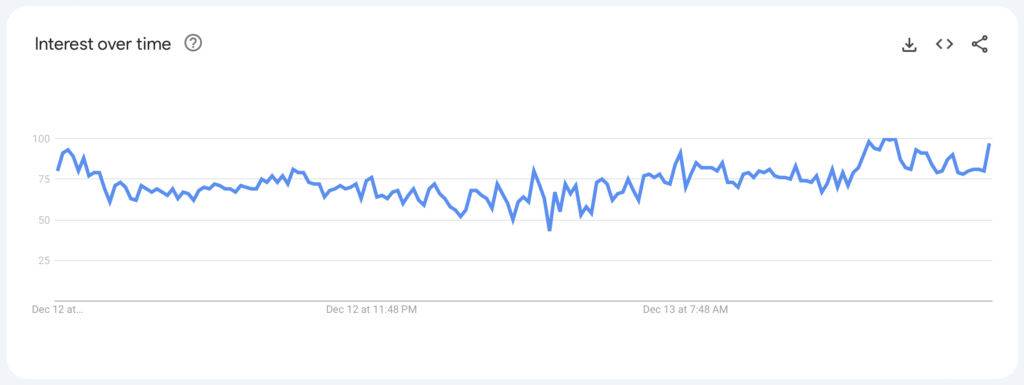Ready to dive into entrepreneurship? Your first exhilarating step is discovering that perfect business niche – a place where your passions, skills, and the market’s heartbeat perfectly align. Here, we’ll explore every angle of your niche selection. I’ll guide you through understanding market dynamics, assessing competition, and aligning your deepest passions with profitable opportunities. If you’re eager to turn your entrepreneurial dreams into reality but unsure where to start, you’re in the right spot. Let’s embark on this journey together and find the business niche that’s just right for you! 🚀🌟
Table of Contents
Personal Interests and Passion
When embarking on the journey to select your business niche, the first and perhaps most crucial aspect to consider is your personal interests and passion. This is the cornerstone of your decision-making process, as it strongly influences your long-term success and fulfillment.
Aligning Your Niche with What You Love Doing
Begin by asking yourself: What activities do you find deeply engaging? What topics could you read, talk about, or learn about all day without getting bored? The answers to these questions are indicative of your passions. When your business aligns with these interests, work doesn’t feel like a chore. Instead, it becomes a source of joy and fulfillment.

The Importance of Passion in Sustaining Long-Term Interest
Choosing a niche you’re passionate about is more than just enjoyable – it’s strategic. Passion fuels perseverance, especially during challenging times. It’s the difference between feeling burnt out after a setback and being motivated to find solutions. Moreover, customers often notice when a business is driven by genuine enthusiasm and are more likely to connect with your brand.
Avoiding Burnout with a Passion-Driven Niche
Burnout is a real risk in any business endeavor, especially in areas that demand constant innovation and energy. By choosing a niche that resonates with your personal interests, you significantly reduce this risk. You’re more likely to remain enthusiastic and creative over time, which is essential for keeping your business dynamic and engaging.
[Business Niche]: A Case Study
If your niche area sparks your interest, perhaps due to a personal experience or a long-standing fascination with the field, it’s a strong contender for your business focus. Your natural inclination towards this niche will keep you curious, motivated, and deeply involved, which are key ingredients for success.
In conclusion, aligning your business niche with your personal interests and passions is not just about enjoyment—it’s a smart business strategy. It ensures that you remain committed and energized, laying a strong foundation for long-term success and satisfaction in your entrepreneurial journey.
Market Demand and Audience Needs
Once you’ve identified your personal interests and passions, the next crucial step in selecting your business niche is understanding market demand and audience needs. This phase is about ensuring that your passion meets a real need in the marketplace, a key factor in the viability of your business niche.
Researching Market Trends and Demand
The first task is to conduct thorough market research. This involves analyzing current trends, understanding what consumers in your potential niche are looking for, and identifying any unmet needs. Tools like Google Trends, industry reports, and social media can provide valuable insights into what your target audience is interested in and talking about.

Identifying Gaps in the Market
Your goal is to find a sweet spot where your interests overlap with what people are actively seeking but aren’t finding. Are there questions that are frequently asked but not adequately answered in your business niche? Is there a service that’s in demand but not sufficiently provided? Pinpointing these gaps can guide you toward a niche that’s both personally fulfilling and commercially promising.
Understanding the Target Audience’s Needs and Preferences
Deeply understanding your potential customers is pivotal. Create buyer personas to represent your ideal customers. Consider factors like their demographics, challenges, and goals. What problems do they face that your business niche can solve? How do they prefer to consume content or purchase products? The more detailed your understanding, the better you can tailor your business to meet their needs.
[Business Niche]: A Practical Example
Let’s say you’re passionate about eco-friendly products. Through research, you might discover that consumers are looking for sustainable home goods but find limited options. This insight offers a clear direction for your business, combining your passion with a real market need.
In summary, aligning your business niche with market demand and audience needs is a critical step in ensuring the success of your business. By thoroughly researching and understanding what your audience is seeking, you can position your business to fill a gap in the market, satisfying both your personal interests and your customers’ needs.
Profitability Potential
After aligning your interests with market demands, the next step in choosing your business niche is evaluating its profitability potential. This is where you assess whether your business niche can not only capture interest but also generate sustainable income.
Analyzing Potential Revenue Streams in Different Niches
Every niche has its unique ways of generating revenue. For example, some niches are more suited for direct product sales, while others thrive on advertising revenue or affiliate marketing. Consider the different revenue models applicable to your business niche. How do similar businesses in this niche make money? This analysis will help you identify the most viable financial paths.

Evaluating Competition and Market Saturation
Understanding your competition is crucial. A highly competitive niche might indicate a healthy market, but it can also mean you’ll need to work harder to stand out. Conversely, a niche with little competition could signal untapped potential or a lack of demand. Conduct a SWOT analysis (Strengths, Weaknesses, Opportunities, Threats) to better understand where your proposed business niche stands. Read more about SWOT here. Watch to learn more about SWOT here.
Long-term Profitability vs. Short-term Gains
Consider the long-term profitability of your business niche. Some niches might offer quick returns but lack sustainability, while others may require more time to become profitable but promise long-term gains. Your financial goals and personal circumstances will influence this decision. Are you looking for a steady income or a high-risk, high-reward scenario?
[Business Niche]: Real-world Examples
To contextualize these considerations, examine real-world examples within your business niche. For instance, if you’re interested in the health and wellness niche, look at the success stories and challenges of businesses in that space. What made them profitable? Learning from their experiences can provide invaluable insights into the financial aspects of your chosen niche.
In conclusion, assessing the profitability potential of your business niche is a critical step. It’s not just about finding a gap in the market but also ensuring that this gap can lead to a profitable business venture. By carefully analyzing revenue streams, competition, and long-term potential, you can make a more informed decision about the financial viability of your chosen niche.
Skills and Expertise
The fourth critical aspect to consider when choosing your business niche is the alignment of your skills and expertise with the niche’s demands. This is where you evaluate how your existing abilities and knowledge can be leveraged to excel in your chosen field.
Leveraging Existing Skills and Knowledge
Start by taking inventory of your current skill set. What are your strengths? How do these align with the requirements of the business niche? For example, if you’re a strong communicator and your niche involves a lot of customer interaction, that’s a perfect match. If there’s a gap between your skills and the needs of the niche, consider if you’re willing and able to bridge it through learning and development.

The Need for Continuous Learning and Adaptation
No matter how well your current skills align with a niche, the business world is ever-evolving. Continuous learning is key. Stay updated on industry trends and advancements. This might mean taking courses, attending workshops, or simply keeping up with industry news. The more you know about your business niche, the better equipped you’ll be to succeed.
Balancing Expertise with Market Needs
It’s also important to balance your expertise with what the market needs. You might be highly skilled in a certain area, but if there’s no market demand for that expertise in your chosen niche, it won’t translate into business success. Always weigh your skills against market demands.
[Business Niche]: Practical Skills Application
Consider a practical scenario in your business niche. Suppose you’re interested in the digital marketing niche, and you have skills in social media management and SEO. How do these skills meet the needs of the market? Are businesses in this niche looking for such expertise? Answering these questions can help you understand how to position your skills effectively.
Matching your skills and expertise with the demands of your business niche is essential for success. This alignment ensures you can confidently enter the market, continually adapt to changes, and meet the needs of your target audience effectively.
Monetization Strategies
Choosing the right monetization strategies is a pivotal aspect of determining your success in a chosen business niche. This section explores the various ways you can generate income from your niche, helping you align your financial goals with the realities of the market.
Different Ways to Make Money in Various Niches
Your business niche might offer several avenues for revenue generation. These could include selling physical products, offering services, digital products, affiliate marketing, or advertising revenue. Each method has its unique set of advantages and challenges. It’s essential to understand these to choose the best fit for your business model and personal preferences.

Pros and Cons of Each Monetization Method
For instance, selling physical products might offer tangible profits but comes with challenges like inventory management and shipping. Digital products, while easier to distribute, may require continuous updates and strong marketing strategies. Affiliate marketing can be lucrative but relies heavily on traffic and conversions. Lay out the pros and cons of each method concerning your business niche.
Aligning Monetization Strategies with Personal Goals
Your choice of monetization should also reflect your personal goals and lifestyle preferences. If you seek a more passive income model, digital products or affiliate marketing might be more appealing. If you enjoy direct interaction with customers and have a knack for sales, offering services or physical products could be more satisfying and profitable for you.
[Business Niche]: Practical Monetization Examples
Let’s apply this to a real-world context within your business niche. For instance, if you’re passionate about fitness and wellness, you could sell physical products like fitness equipment, create and sell workout plans and diet guides as digital products, or even offer personal training services. Each of these monetization strategies aligns differently with various aspects of the niche and your personal goals.
In conclusion, understanding and choosing the right monetization strategies for your business niche is crucial. It not only affects your potential income but also plays a significant role in how you operate your business and achieve your personal and professional goals.
Work-Life Balance and Lifestyle
When selecting your business niche, it’s vital to consider how it will impact your work-life balance and overall lifestyle. This aspect is about ensuring that your business aspirations align with your personal life goals and daily routine.
Considering the Impact of Niche Choice on Personal Life
Your chosen business niche can significantly influence your daily life. Some niches might demand more time, while others offer more flexibility. Reflect on how much time you are willing to dedicate to your business and how it fits into your existing lifestyle. For example, a niche requiring constant travel might not be suitable if you prefer a stable, home-based routine.

Time Investment Required for Different Niches
Different niches require different levels of time investment. Some may need constant online presence, while others might have more relaxed schedules. Consider how this aligns with your personal preferences. Do you thrive in high-energy, time-intensive environments, or do you prefer a more laid-back approach?
Flexibility and Location Independence
Another aspect to consider is the level of flexibility and location independence the niche offers. Some business niches allow you to work remotely, providing the freedom to travel or live anywhere. Others might require a fixed location or more in-person engagement. Think about what level of flexibility is important to you and how it aligns with your long-term lifestyle goals.
[Business Niche]: A Lifestyle Compatibility Check
To put this into perspective, if you’re considering a niche like freelance writing or digital marketing, these typically offer high flexibility and the option for remote work. On the other hand, opening a store with physical products would require a more hands-on approach and a fixed location.
The impact of your business niche on your work-life balance and lifestyle is a critical factor to consider. It’s about finding a balance that not only leads to a successful business but also supports a fulfilling personal life. Your niche should complement, not complicate, your desired lifestyle.
Scalability and Growth Potential
As you delve into choosing your business niche, an essential factor to consider is the scalability and growth potential of the niche. This is about understanding how your chosen field can evolve over time and how it can accommodate growth and expansion.
Assessing the Scalability of Different Niches
Different business niches have varying capacities for growth. Some niches might offer rapid scalability, while others grow more steadily over time. Evaluate how easily you can expand your business within the niche. Consider factors like market size, potential customer base expansion, and the ease of introducing new products or services.

Opportunities for Growth and Expansion
Look for opportunities within your niche that could lead to growth. This could include diversifying your product or service offerings, exploring new markets, or leveraging technological advancements. For instance, in a tech-related niche, staying ahead of emerging technologies could open up new avenues for expansion.
The Role of Innovation and Staying Ahead of Trends
Innovation is key to scalability. Continuously seek ways to innovate within your niche. This could involve adopting new business models, embracing cutting-edge technologies, or finding creative solutions to industry challenges. Staying ahead of trends is also crucial. Being one of the first to capitalize on emerging trends in your niche can set you apart and drive significant growth.
[Business Niche]: Real-World Scaling Strategies
Consider real-world examples within your chosen niche. For instance, in a tech-related [business niche], businesses might scale by adopting the latest technologies or expanding their service offerings to new industries. Analyzing these examples can provide insights into effective scaling strategies.
In conclusion, understanding and planning for the scalability and growth potential in your [business niche] is essential. It’s not just about starting a business; it’s about creating a growth-oriented enterprise that can thrive and expand in a dynamic market environment.
Risk Assessment and Tolerance
When deciding on your business niche, a critical aspect to consider is risk assessment and tolerance. This involves understanding the risks associated with your chosen niche and gauging your comfort level with these risks.
Understanding the Risks Involved in Various Niches
Different business niches come with different types of risks. These could range from financial risks and market volatility to competition and technological changes. Conduct thorough research to identify the specific risks associated with your chosen niche. Understanding these risks is essential for making an informed decision.

Personal Risk Tolerance and Managing Uncertainties
Your personal risk tolerance is a key factor in your decision. Are you comfortable with high-risk, potentially high-reward scenarios, or do you prefer a more stable, lower-risk approach? Assessing your risk tolerance involves considering your financial stability, support system, and ability to handle stress and uncertainty.
Strategies for Mitigating Risks
Once you understand the risks and your tolerance level, develop strategies to mitigate them. This could include diversifying your income sources, building a financial safety net, or staying adaptable to market changes. In your business niche, think about specific strategies that could help minimize risk. For instance, in a highly competitive niche, differentiating your product or service can be a key risk mitigation strategy.
[Business Niche]: Real-Life Risk Scenarios
Take a look at real-life scenarios in your business niche. How have others navigated risks? What challenges did they face, and how did they overcome them? Learning from these experiences can provide valuable insights into managing risks in your chosen niche.
In summary, risk assessment and tolerance are crucial in choosing your business niche. It’s about balancing the potential rewards with the risks and ensuring you have strategies in place to manage these risks effectively. By carefully considering these aspects, you can choose a niche that aligns with your goals and comfort level with risk.
Impact and Contribution
As you evaluate your business niche, another significant aspect to consider is the impact and contribution your business will have. This is about aligning your business goals with your personal values and aspirations to contribute positively to your community or industry.
Choosing a Niche That Aligns with Personal Values
Your business niche should resonate with your personal values and ethics. This alignment not only brings personal satisfaction but also helps in building a brand that reflects authenticity and integrity. Ask yourself: Does this niche allow me to contribute positively? How does it align with my values?

Social Responsibility and Ethical Considerations
In today’s market, social responsibility and ethics play a significant role in business success. Consumers are increasingly drawn to brands that prioritize ethical practices and contribute to social causes. Evaluate how your chosen niche allows for these considerations. Can you adopt sustainable practices, support community initiatives, or advocate for positive change within the industry?
Creating a Positive Impact Through Your Niche
Think about the broader impact of your business. Beyond profitability, consider how your business can make a difference. This could be through providing valuable services, creating job opportunities, supporting local suppliers, or even influencing positive changes in consumer behavior.
[Business Niche]: Examples of Positive Contribution
Look for inspirational examples within your business niche where businesses have made notable contributions. For instance, in the health and wellness niche, a business might contribute by promoting mental health awareness or supporting wellness in underserved communities.
In conclusion, considering the impact and contribution of your business within the business niche is not only fulfilling on a personal level but also beneficial for building a strong, respected brand. It’s about making a meaningful difference while achieving business success.
Resource Availability
A critical factor in determining the feasibility of your business niche is the availability of resources. This aspect involves assessing what resources you need to launch and grow your business and understanding how accessible these resources are to you.
Analyzing the Resources Needed for Different Niches
Every business niche requires a unique set of resources. These can range from financial investment and physical space to specialized equipment or software. Begin by listing the resources you’ll need for your chosen niche. For instance, an online store may require less physical space but more investment in website development and online marketing tools.

Accessibility of Resources and Support Systems
Consider the accessibility of these resources. Do you have the necessary funding, or can you secure it? Are there local suppliers, business networks, or support systems you can tap into? In some cases, limited resources might steer you towards a different niche or business model that’s more feasible given your current situation.
Outsourcing and Delegation Strategies
In situations where resources are scarce, consider outsourcing or delegating certain tasks. This can be particularly useful in areas where you lack expertise or time. For example, if you’re starting a business in a technology-intensive business niche but lack technical skills, outsourcing software development could be a viable solution.
[Business Niche]: Resource Planning Example
If you’re considering entering the artisanal food market, you’ll need to think about kitchen space, ingredient sourcing, packaging, and distribution channels. How will you access these resources, and what are the costs involved? This planning is essential for a smooth business launch and operation.
Understanding and securing the necessary resources for your niche is a crucial step in your business journey. It requires careful planning and sometimes creative problem-solving to ensure that you have everything you need to successfully start and grow your business.
Regulatory and Legal Considerations
As you zero in on your business niche, it’s crucial to consider the regulatory and legal aspects. This involves understanding the specific laws, regulations, and compliance requirements related to your chosen field.
Understanding Legal and Regulatory Requirements
Different niches come with different sets of rules and regulations. It’s essential to be well-informed about the legal requirements that apply to your niche. This might include licenses, permits, industry-specific regulations, and tax obligations. Failing to comply can lead to legal issues and fines, so thorough research and possibly legal consultation are advisable.

Compliance and Its Impact on Business Operations
Consider how compliance with these regulations will impact your business operations. For instance, if you’re in a highly regulated industry like healthcare or finance, you may need to invest more in legal services and compliance software. Understanding these requirements upfront can help you plan more effectively and avoid future complications.
Navigating the Complexities of Different Industries
Some industries are more complex than others in terms of regulatory demands. It’s important to understand these complexities and be prepared to navigate them. Staying updated on any changes in laws and regulations that might affect your business niche is also crucial.
Networking and Community Support
Another key factor in choosing your business niche is the availability and strength of networking opportunities and community support. This aspect is about leveraging connections and resources available within your niche community for mutual growth and learning.
The Role of Networking in Success Within a Niche
Networking can play a significant role in the success of your business. Connections with other professionals in your business niche can provide valuable insights, partnership opportunities, and referrals. Attend industry events, join relevant online forums, and engage with your niche community on social media to build these connections.

Building Relationships with Peers and Mentors
Building relationships within your niche can offer immense benefits. Mentors can provide guidance, while peers can offer support and collaboration opportunities. These relationships can be especially valuable when you’re new to the niche and trying to establish your business.
Leveraging Community Support and Resources
Many niche communities offer support in various forms, such as shared resources, collaborative platforms, or educational content. Engaging with these communities can provide you with tools and knowledge that might be difficult to access on your own.
In conclusion, understanding and managing the regulatory and legal aspects of your business niche is crucial for a smooth operation. Simultaneously, actively engaging in networking and leveraging community support can significantly enhance your business prospects and operational capabilities in your chosen niche.
Future Trends and Sustainability
In the quest to find the perfect business niche, a forward-looking approach is essential. This involves anticipating future trends and ensuring that your business remains sustainable and relevant over time.
Anticipating Future Trends and Their Impact on Different Niches
Staying ahead in your business niche means keeping an eye on emerging trends and technological advancements. What new developments are on the horizon in your field? How could these changes affect consumer behavior or industry standards? Being proactive in your approach allows you to adapt and innovate, keeping your business ahead of the curve.

Adapting to Changes and Staying Relevant
Flexibility and adaptability are key to maintaining relevance. The ability to pivot and embrace new technologies or methodologies can be the difference between thriving and becoming obsolete. Consider how adaptable your business niche is to change. Are there opportunities for continuous learning and development?
Building a Sustainable and Future-Proof Business
Sustainability is not just about environmental responsibility; it’s also about building a business that can sustain itself economically over the long term. This means creating a business model that is not only profitable now but also has the potential to remain profitable in the face of future market shifts. How can you build resilience and sustainability into your business model?
[Business Niche]: Keeping Pace with Innovation
For instance, if your business niche is in the realm of digital marketing, staying updated with the latest SEO strategies, social media trends, and content marketing techniques is crucial. As these trends evolve, your strategies should too, ensuring your business stays relevant and competitive.
In summary, keeping an eye on future trends and focusing on sustainability is crucial for the long-term success of your niche. By staying informed, adaptable, and forward-thinking, you can build a business that not only thrives today but is also well-prepared for the challenges and opportunities of tomorrow.
Conclusion
As we wrap up our exploration of how to determine the right business niche, it’s important to summarize the key takeaways and encourage a reflective approach to making this crucial decision.
Summarizing Key Takeaways
Choosing the right business niche is a multifaceted decision that involves balancing your interests and passions with practical considerations like market demand, profitability, resource availability, and risk tolerance. It’s about finding a niche where your skills and expertise can shine, and where you can make a meaningful impact while achieving financial success.

Encouraging Self-Reflection and Research
The journey to finding your ideal niche is as much about introspection as it is about external research. Reflect on what truly motivates you, what you’re passionate about, and how this aligns with market opportunities and trends. Equally, delve into research about different niches, understanding the nuances and demands of each.
Steps to Take After Choosing a Niche
Once you’ve selected a business niche, the next steps involve detailed planning and execution. This includes developing a business plan, understanding your target audience, setting up your business structure, and creating a strategy for growth and scalability. Remember, the choice of niche is just the beginning – the real journey starts with turning your vision into reality.
In conclusion, selecting the right business niche is a critical step in your entrepreneurial journey. It requires a blend of passion, practicality, and foresight. Take the time to carefully consider each aspect we’ve discussed, and you’ll be well on your way to building a successful and fulfilling business.
FAQs on Choosing the Right Business Niche

1. How do I know if a business niche is right for me?
- Answer: The right business niche aligns with your interests and skills while also having a viable market demand. Evaluate your passions and strengths, research market trends, and consider the competition in the niche. If you find a niche that excites you and has potential for growth and profitability, it’s a good sign that it’s right for you.
2. Can I switch my business niche later if I change my mind?
- Answer: Yes, it’s possible to pivot to a different niche, but it’s often challenging and may require starting from scratch in terms of building a customer base and brand. It’s better to invest time upfront in thorough research to choose a niche that you’re likely to stick with long-term.
3. How important is market research in selecting a business niche?
- Answer: Market research is crucial. It helps you understand the needs and preferences of your target audience, the size of the market, and the level of competition. This information is essential for making an informed decision and for crafting strategies that resonate with your potential customers.
4. What if my interests don’t seem to align with profitable niches?
- Answer: It’s essential to strike a balance. While passion is important, profitability is crucial for business sustainability. Look for ways to blend your interests with market needs. Sometimes, this may involve slightly tweaking your interests or finding sub-niches that can be both profitable and enjoyable.
5. How do I assess the competition in my chosen niche?
- Answer: Start by identifying your main competitors and analyze their strengths and weaknesses. Look at their product offerings, marketing strategies, customer reviews, and market positioning. This will give you insights into market gaps you can fill and help you understand how to differentiate your business.
6. Should I choose a niche with less competition to increase my chances of success?
- Answer: Not necessarily. While a less crowded niche might offer easier entry, it may also indicate a smaller market or a lack of demand. Sometimes, a competitive niche can be a sign of a healthy, in-demand market. The key is to find a niche where you can offer something unique or better than what’s currently available.
7. How do I know if a niche is profitable?
- Answer: Look at the existing businesses in the niche. Are they successful and thriving? Research the average revenue and profit margins in the niche. Also, consider the long-term potential – is the demand growing, stable, or declining? Profitability is not just about current success but also about future potential.
8. How much does passion matter when choosing a business niche?
- Answer: Passion is important as it drives motivation and resilience, especially during challenging times. However, it should be balanced with practical considerations like market demand and profitability. A niche that you’re passionate about but also has a market demand is ideal.






Pingback: Navigating Business Challenges: Mastering SWOT Analysis for Strategic Success in 2024. - The Biz
Pingback: Mastering SEO for Business Success in 2024 - The Biz